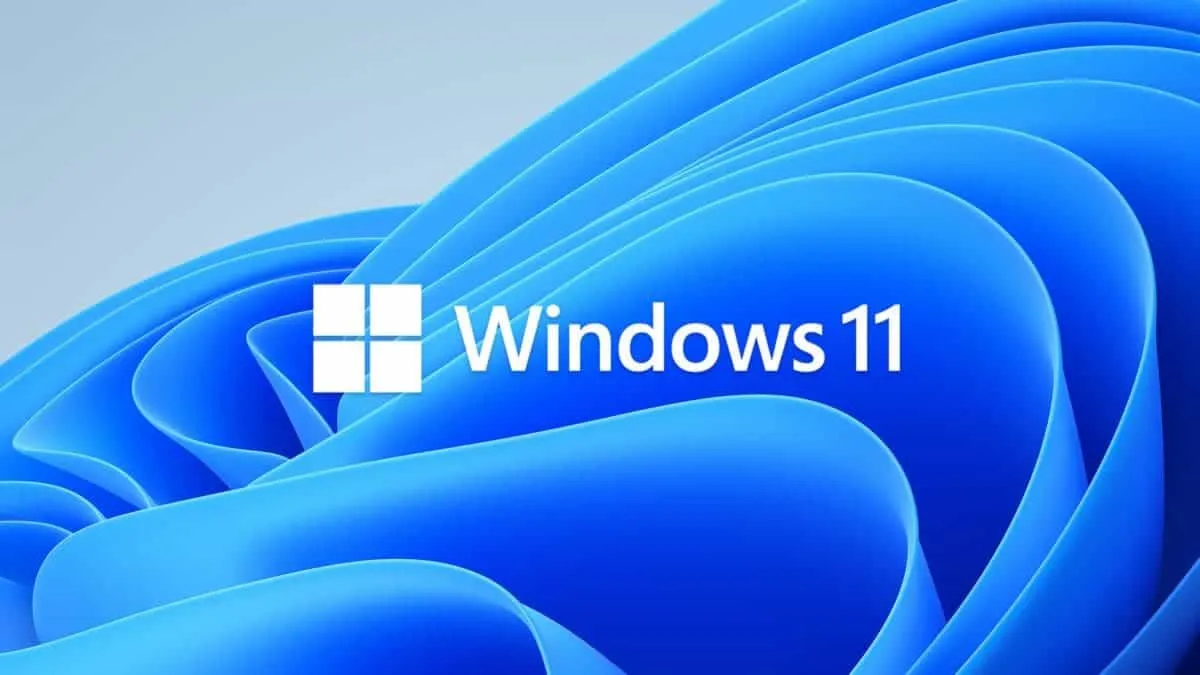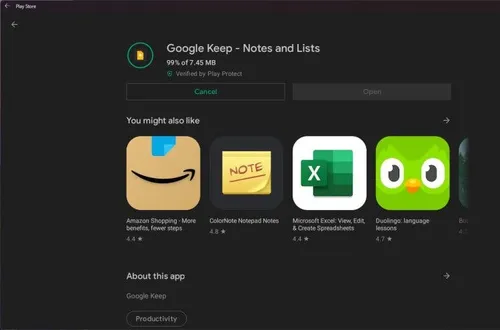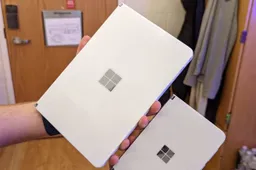A developer has managed to install Google Play Store on Windows 11
newsMonday, 25 October 2021 at 06:35

This week Microsoft began testing the Windows Subsystem for Android (WSA), which makes it possible to run Android applications on Windows 11. However, it is now available to a limited number of insiders and in a very stripped down form. Despite this, enthusiasts managed to roll out the Google Play Store in Windows 11, effectively making millions of Android apps available for installation.
During the testing phase, Windows Insiders can find descriptions of 50 Android apps in the Microsoft Store, along with links to download them from the Amazon Appstore. It seems that this state of affairs did not suit the enthusiast under the nickname ADeltaX, who announced on Twitter that he was able to install Google Play services and the Play Store on Windows 11.
This means that he can run any Android mobile application available in the official Google store on his computer. Although the developer has detailed the method for installing the Play Store in Windows 11, the source notes that they should not be used by inexperienced users, as there is a possibility of disrupting the operating system.
In terms of official testing, currently, Insiders can only download 50 Android apps to their computers. Microsoft is working with Amazon to expand the list of available applications. “We partnered with Amazon and app developers; to deliver 50 Windows Insider apps for testing and compatibility across multiple hardware configurations. In the coming months, we will be releasing new applications through updates to the Windows Insider Program, ” Microsoft said in a statement. It is not specified when the WSA subsystem will become available to all Windows 11 users.

Windows 11 got people interested, but few are willing to buy a new computer for it
According to online sources; many people do not intend to buy a new computer or laptop to upgrade to Windows 11. This conclusion follows from the results of a survey conducted by the OnePulse platform.
According to available data, 1,000 people from the US and UK took part in the OnePulse survey. Thus, in the US, 14.6% of respondents plan to purchase a new device running Windows 11 by the end of the year. In the UK, this figure is even lower; only 12.4% of respondents expressed a desire to buy a computer or laptop with the new Microsoft operating system. At the same time, 22.6% of respondents plan to buy a device with Windows 11 next year; but many (42%) intend to keep the current device, later upgrading their operating system to Windows 11.
The survey also found that users generally like Microsoft's new software platform today. 51.6% of respondents had a positive impression of Windows 11; while only 8.1% of respondents expressed a sharply negative attitude towards the OS. At the same time, about 40% of respondents were in favor of not making premature conclusions; until the OS becomes more mature. In their opinion, Windows 11 should be evaluated later; when Microsoft releases several functional updates, gets rid of known issues; and makes previously announced tools such as support for launching Android applications publicly available.
Popular News
Latest News
Loading



